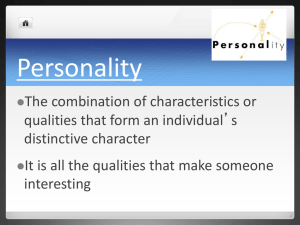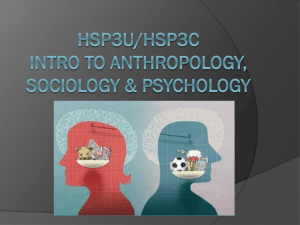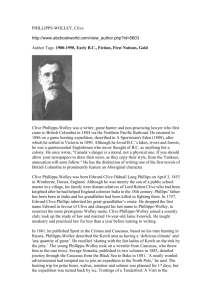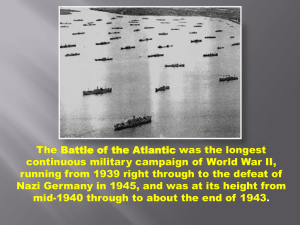Thinking Out Loud
advertisement
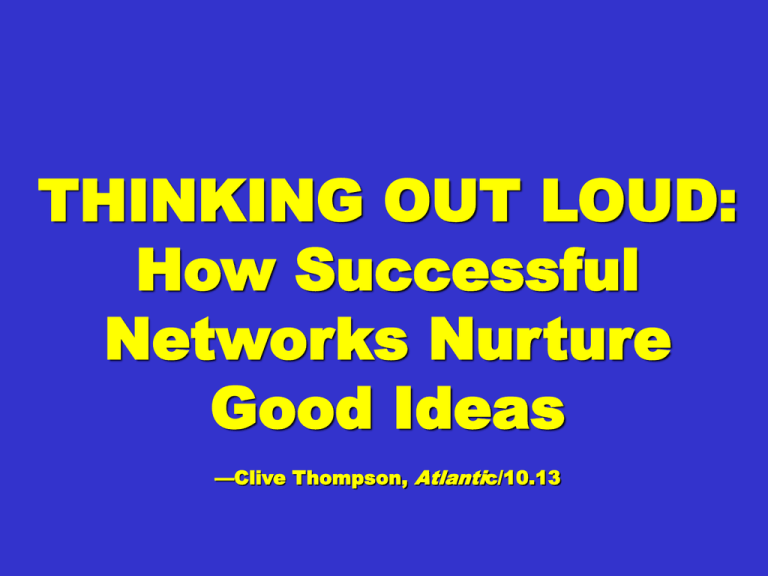
THINKING OUT LOUD: How Successful Networks Nurture Good Ideas —Clive Thompson, Atlantic/10.13 Per DAY 154.6 billion emails 400 million tweets 16 billion words on Facebook 52 TRILLION words on email and social media* (*equivalent to 520 million books) —Clive Thompson, “THINKING OUT LOUD: How Successful Networks Nurture Good Ideas,” Atlantic/10.13 “Before the Internet, most people rarely wrote for pleasure or intellectual satisfaction after graduating from high school or college. … The fact that so many of us are writing—sharing our ideas, good and bad, for the world to see—has changed the way we think. Just as we now live in public, so do we think in public. And that is accelerating the creation of new ideas and the advancement of global knowledge.” —Clive Thompson, “THINKING OUT LOUD: How Successful Networks Nurture Good Ideas,” Atlantic/10.13 “Having an audience can clarify thinking. It’s easy to win an argument inside your head. But when you face a real audience, you have to be truly convincing. … Studies have found that the effort of communicating to someone else forces you to pay more attention and learn more.” —Clive Thompson, “THINKING OUT LOUD: How Successful Networks Nurture Good Ideas,” Atlantic/10.13 “Brenda Clark Gray, an instructor at Douglas College in British Columbia, had her English students create Wikipedia entries on Canadian writers to see if it would get them to take the assignment more seriously. She was stunned at how well it worked. ‘Often they’re handing in these essays without any citations, but with Wikipedia they suddenly were staying up till 2 a.m. honing and writing the entries and carefully sourcing everything,’ she tells me. The reason, the students explained to her, was that their audience—the Wikipedia community—was quite gimlet-eyed and critical. They were harder ‘graders’ than Gray herself.” —Clive Thompson, “THINKING OUT LOUD: How Successful Networks Nurture Good Ideas,” Atlantic/10.13 “Once thinking is public, connections take over. Anyone who’s Googled a favorite hobby, food, or political subject has discovered some teeming site devoted to servicing the infinitesimal fraction of the public that shares their otherwise obscure obsession. (Mine: guitar pedals, modular origami, and the 1970s anime show ‘Battle of the Planets.’) Propelled by the hyperlink, the Internet is a connection-making machine. And making connections is a big deal in the history of thought. …” —Clive Thompson, “THINKING OUT LOUD: How Successful Networks Nurture Good Ideas,” Atlantic/10.13



